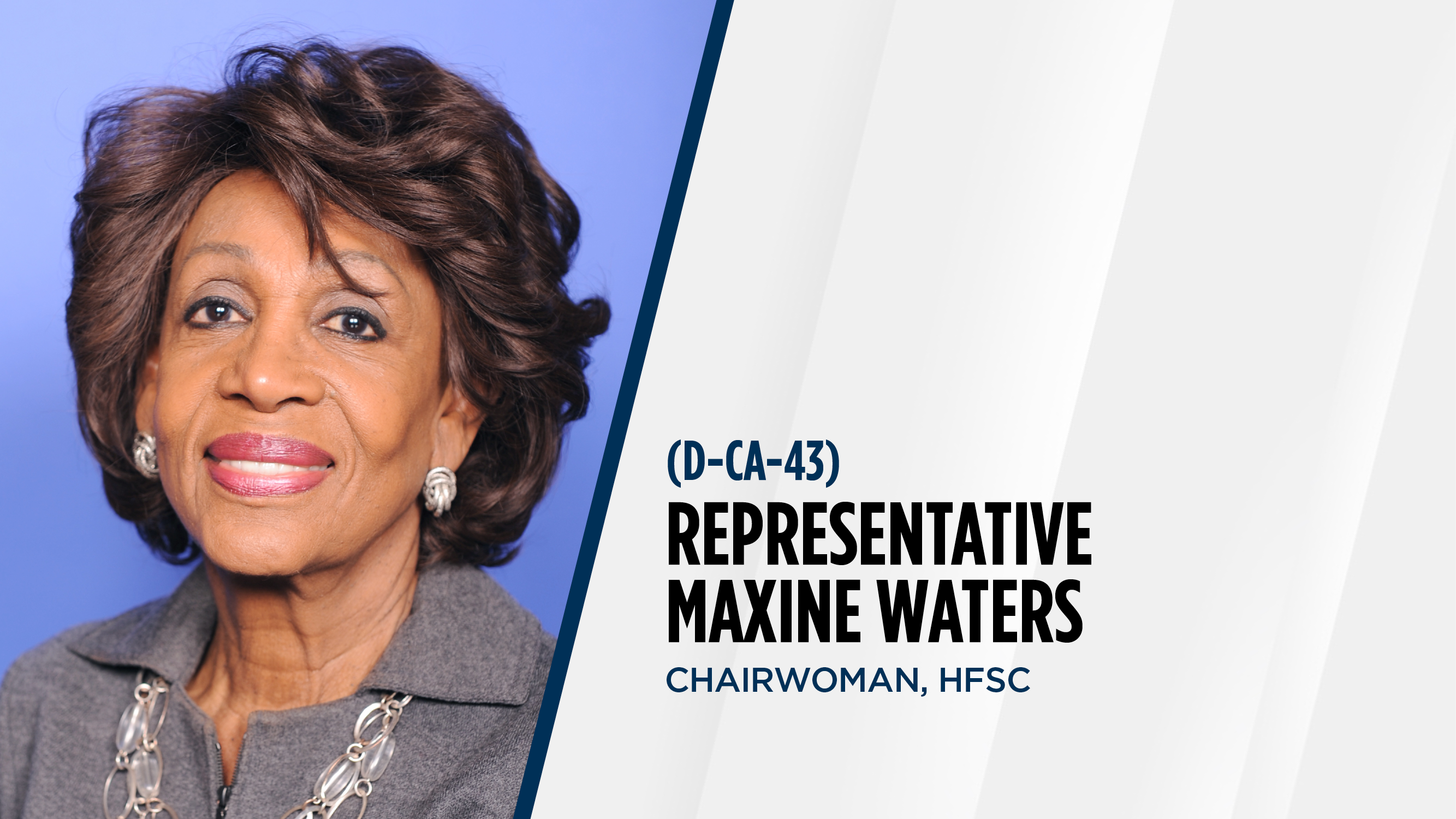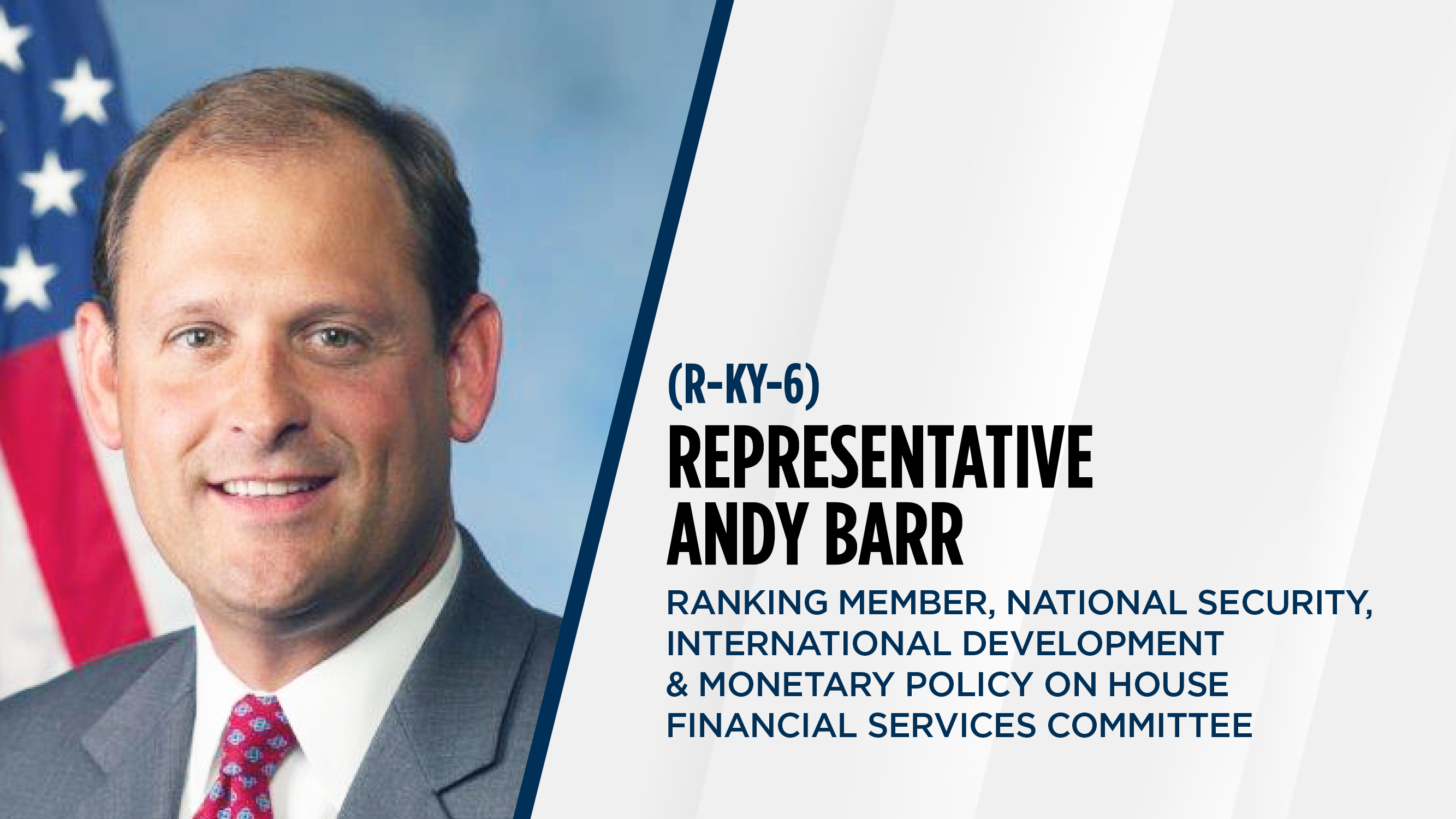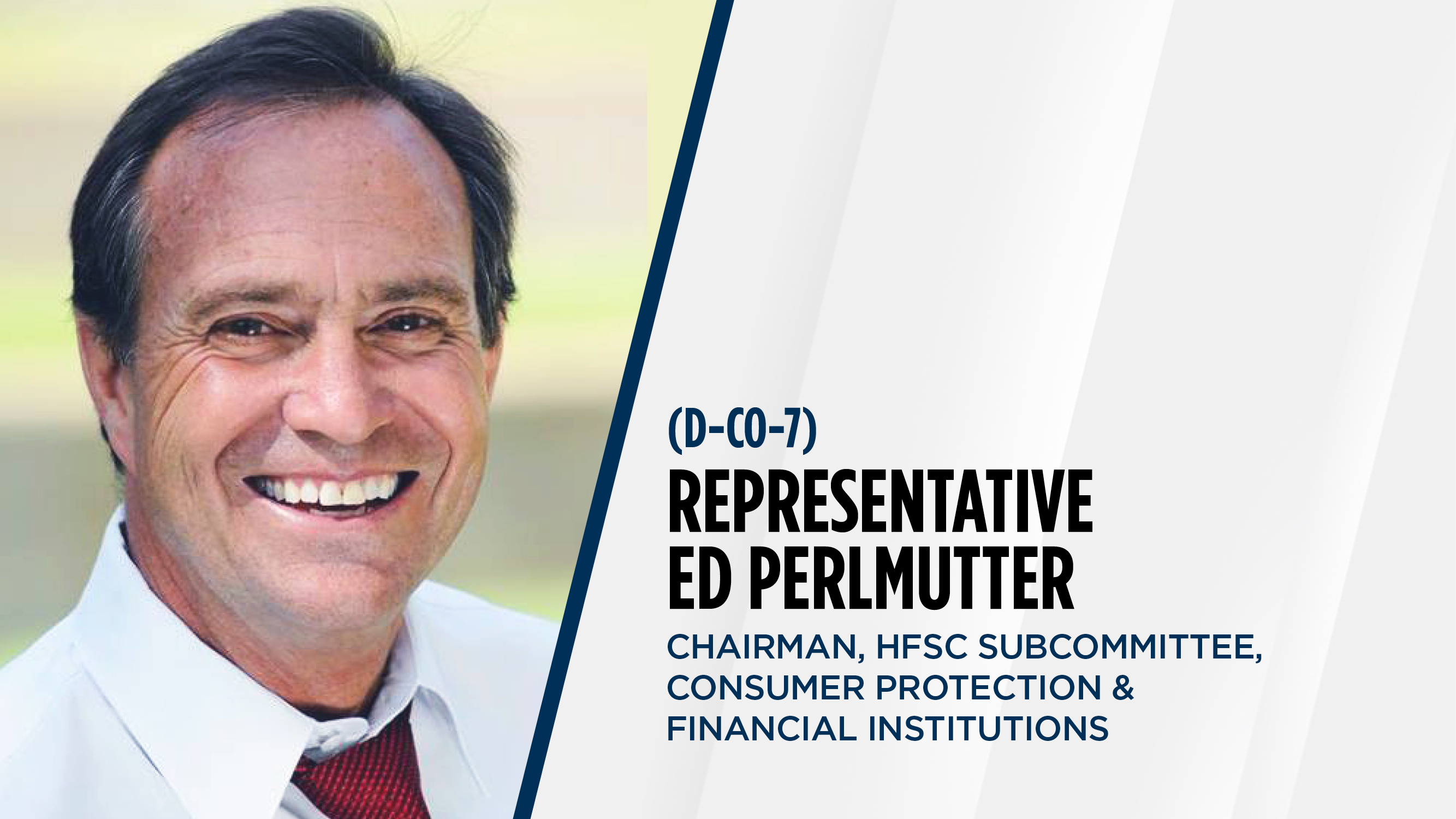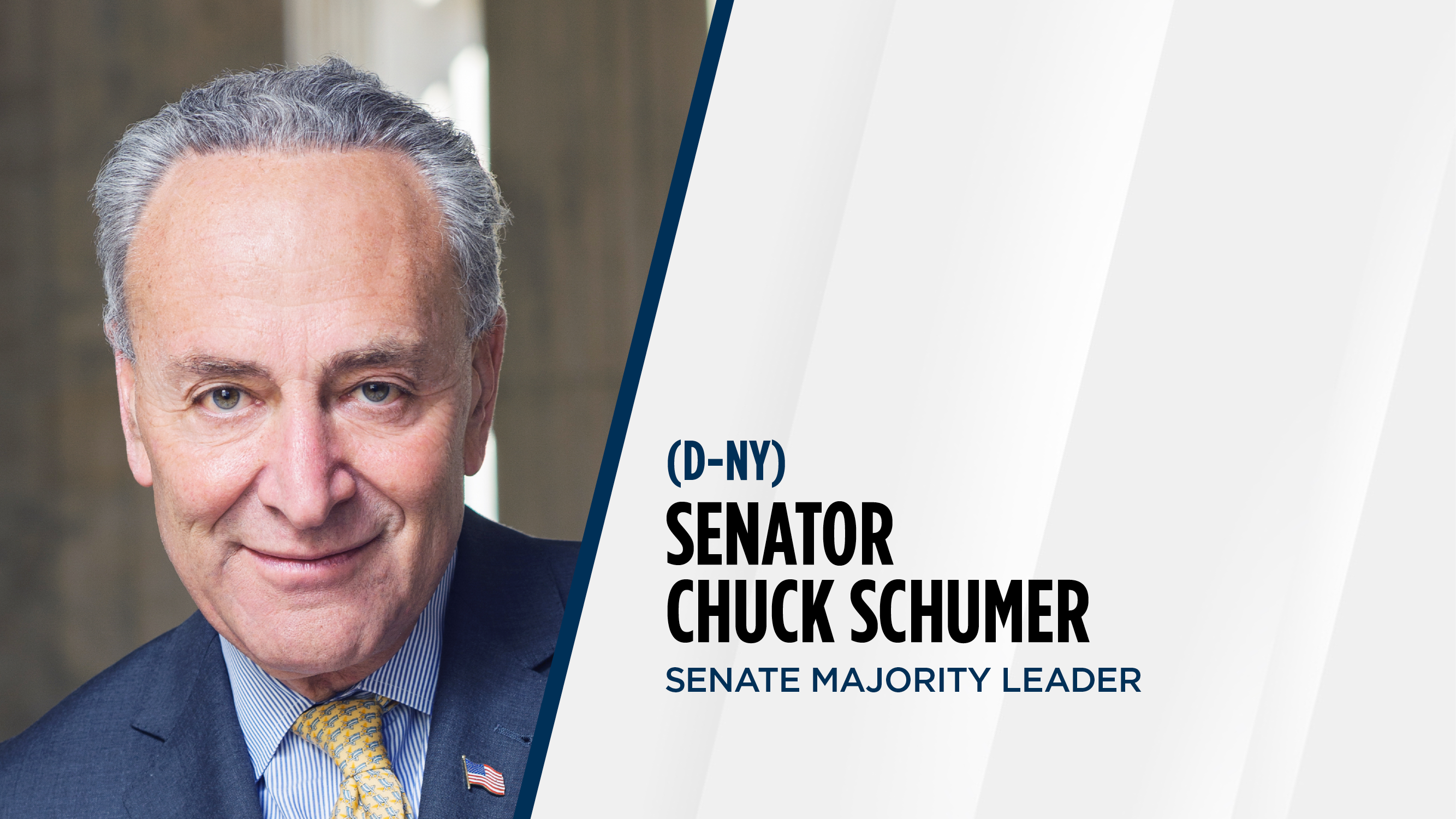Newsroom
Congressional speakers share legislation outlook during final day of Caucus
 During the final day of NAFCU’s Congressional Caucus, several lawmakers shared policy insights on the economic recovery and what can be done to ensure financial institutions, like credit unions, are being given the tools they need to best serve their members.
During the final day of NAFCU’s Congressional Caucus, several lawmakers shared policy insights on the economic recovery and what can be done to ensure financial institutions, like credit unions, are being given the tools they need to best serve their members.
Both House Financial Services Committee Chairwoman Maxine Waters, D-Calif., and Rep. Ed Perlmutter, D-Colo., began their respective remarks by thanking Carlos Pacheco, CEO of Premier Members Credit Union (Boulder, Colo.), for his April testimony on behalf of NAFCU before a House Financial Services subcommittee. Waters continued to thank credit unions for their tireless work to deliver critical relief to businesses, particularly minority-owned small businesses.
Regarding the Small Business Administration's (SBA) paycheck protection program (PPP), Waters noted that while many megabanks were busy prioritizing wealthy consumers, “credit unions were on the frontline to ensure PPP loans were distributed to mom-and-pop businesses.”
She continued to discuss the thousands of branches of banks that have closed during the last decade, which have sprouted banking deserts across the nation. “I want to hold megabanks accountable for their behavior,” expressed Waters.
Offering a solution to these banking deserts, which are most often found in communities of color, Waters stated she believes “all credit unions that wish to serve underserved communities in banking deserts should be given the chance, so we’re working on legislation to address this concern.”
Additionally, Waters shared several legislative efforts aimed at strengthening CDFIs and MDIs' access to capital through partnerships with other financial institutions and their ability to receive technical assistance.
Waters reiterated the importance of overturning the OCC’s anti-consumer true lending rule. NAFCU led the effort to overturn this rule to ensure banks do not evade consumer protection laws and usury caps, and to avoid predatory payday lending schemes.
In closing, Waters stressed the importance of staying vigilant towards the financial technology and AI industry. “We must take a hard look at emerging technologies in the financial services and the role of fintechs,” said Waters. “That’s why I reauthorized the task force on financial technology, as well as the task force on artificial intelligence.”
Rep. Barr highlights TABS Act, calls on CFPB oversight
 Barr also thanked Caucus attendees and credit unions for their help during the pandemic. “Credit unions large and small stepped up to help,” said Barr
Barr also thanked Caucus attendees and credit unions for their help during the pandemic. “Credit unions large and small stepped up to help,” said Barr
His remarks focused on CFPB funding, CFPB leadership, and Unfair, Deceptive, or Abusive Acts or Practices (UDAAP).
On holding the CFPB accountable, a topic at the forefront of many credit unions, Barr discussed the Taking Account of Bureaucrats’ Spending (TABS) Act, which would prioritize oversight on how the CFPB manages and spends its budget. “This bill would bring the CFPB under the congressional appropriations process to give your elected representatives in Congress oversight on how CFPB spends its money,” said Barr.
“More can be done to improve the leadership structure of the CFPB,” stated Barr. The Consumer Financial Protection Commission Act, reintroduced by House Financial Services Committee Member Blaine Luetkemeyer, R-Mo. and backed by NAFCU, “would replace the current single director leadership structure, with a five-member bipartisan commission,” explained Barr.
Barr noted that there was also no “precedent or an established definition of ‘abusive’” under UDAAP, which has caused uncertainty for financial institutions on how the CFPB would interpret their products or services. Barr explained he has sent a letter to the CFPB asking for clarification on the abusiveness standard to which they replied with several clarifications under the regulatory standard.
Rep. Perlmutter highlights SAFE Banking Act to create a safe harbor for CUs
During his remarks, House Financial Services Committee Member Rep. Ed Perlmutter, D-Colo., mentioned key issues on housing, specifying that under the Build Back Better bill, housing for homeowners and renters was a top priority.

“We will rebuild and refurbish housing stock for many years to come,” said Perlmutter.
Of note, Perlmutter also discussed the Emergency Rental Assistance Program (ERAP) Improvement Act of 2021 - a rental assistance bill designed to provide guidance to state and local agencies responsible for distributing funds for those facing eviction.
Under his role as the Chair of the Subcommittee on Consumer Protection and Financial Institutions, Perlmutter explained he wants to prioritize sustainability under legislation.
“We want to maintain a stable and strong financial system,” said Perlmutter. “I want to make sure every day Americans aren’t fleeced by sharp practices that we’ve seen arise in the financial service system...and credit unions really care about everyday Americans.”
On a separate note, Perlmutter addressed the SAFE Banking Act, legislation that would create a safe harbor to help financial institutions like credit unions to provide banking services to marijuana-related businesses. “We want to get the SAFE Banking Act passed because we know a lot of cash is generated by these businesses,” remarked Perlmutter.
Sen. Schumer expresses gratitude to CUs
Senate Majority Leader Chuck Schumer, D-N.Y, closed out Congressional Caucus with remarks recognizing credit union efforts in rolling out the PPP during the pandemic crisis. 
“Credit unions have been essential for making sure PPP money gets in the hands to those who need it most,” said Schumer.
In closing, Schumer explained he will work as Senate Majority Leader to give credit unions the tools needed to serve their communities – including fighting to preserve the credit union tax exemption.
NAFCU’s Caucus wrapped up Wednesday. You can find the latest recap from each day here.
Share This
Related Resources
Add to Calendar 2024-06-26 14:00:00 2024-06-26 14:00:00 Gallagher Executive Compensation and Benefits Survey About the Webinar The webinar will share trends in executive pay increases, annual bonuses, and nonqualified benefit plans. Learn how to use the data charts as well as make this data actionable in order to improve your retention strategy. You’ll hear directly from the survey project manager on how to maximize the data points to gain a competitive edge in the market. Key findings on: Total compensation by asset size Nonqualified benefit plans Bonus targets and metrics Prerequisites Demographics Board expenses Watch On-Demand Web NAFCU digital@nafcu.org America/New_York public
Gallagher Executive Compensation and Benefits Survey
preferred partner
Gallagher
Webinar
Add to Calendar 2024-06-21 09:00:00 2024-06-21 09:00:00 2024 Mid-Year Fraud Review Listen On: Key Takeaways: [01:16] Check fraud continues to be rampant across the country. Card fraud is affecting everyone. [04:31] Counterfeit US passport cards are just another new toolbox in the bad actors’ toolbox. [07:21] Blocking the fallback is the only way to defeat counterfeit cards. [11:17] The best way is constant education to your members in as many channels as you can. [13:02] We are still seeing overdraft lawsuits. Make sure the programming you have at your credit union matches what you have displayed for the members. Web NAFCU digital@nafcu.org America/New_York public
2024 Mid-Year Fraud Review
Strategy & Growth, Consumer Lending
preferred partner
Allied Solutions
Podcast
Add to Calendar 2024-06-21 09:00:00 2024-06-21 09:00:00 The Evolving Role of the CISO in Credit Unions Listen On: Key Takeaways: [01:30] Being able to properly implement risk management decisions, especially in the cyber age we live in, is incredibly important so CISOs have a lot of challenges here. [02:27] Having a leader who can really communicate cyber risks and understand how ready that institution is to deal with cyber events is incredibly important. [05:36] We need to be talking about risk openly. We need to be documenting and really understanding what remediating risk looks like and how you do that strategically. [16:38] Governance, risk, compliance, and adherence to regulatory controls are all being looked at much more closely. You are also seeing other technology that is coming into the fold directly responsible for helping CISOs navigate those waters. [18:28] The reaction from the governing bodies is directly related to the needs of the position. They’re trying to help make sure that we are positioned in a way that gets us the most possibility of success, maturing our postures and protecting the institutions. Web NAFCU digital@nafcu.org America/New_York public
The Evolving Role of the CISO in Credit Unions
preferred partner
DefenseStorm
Podcast
Get daily updates.
Subscribe to NAFCU today.
